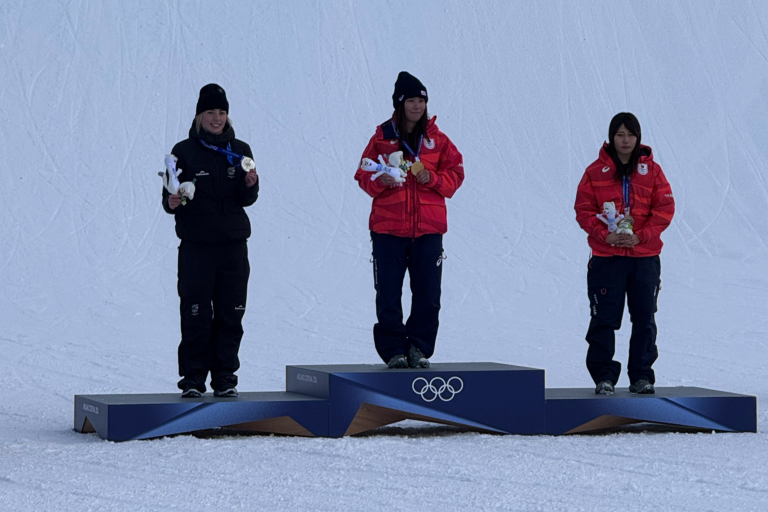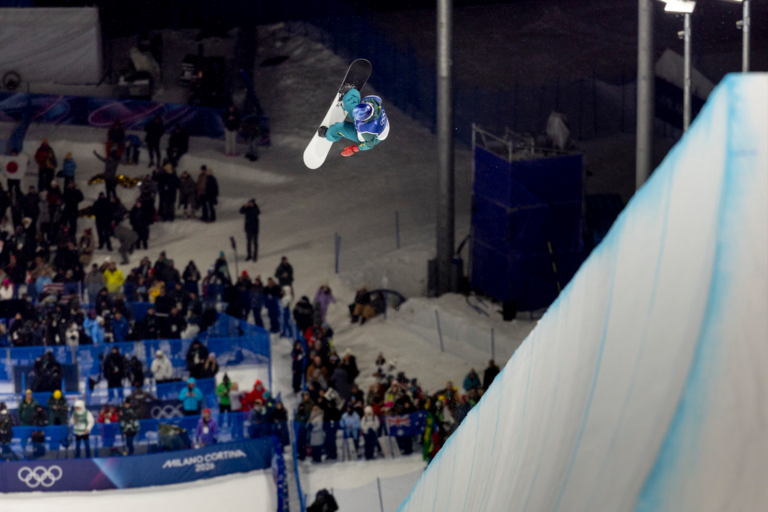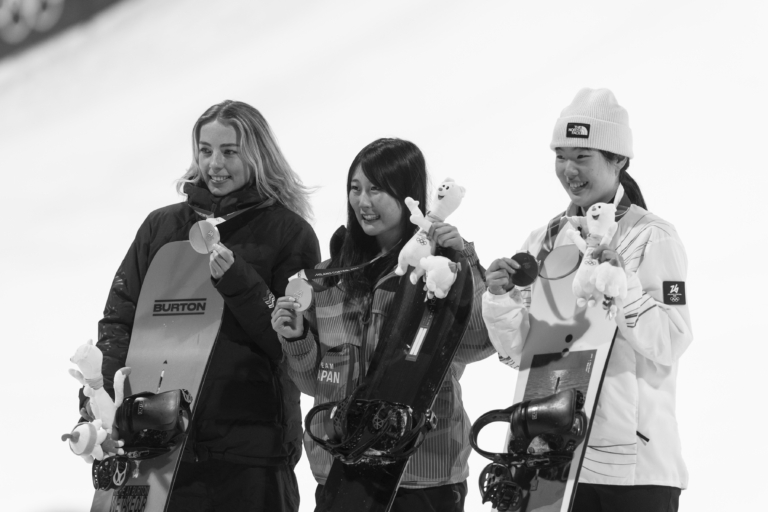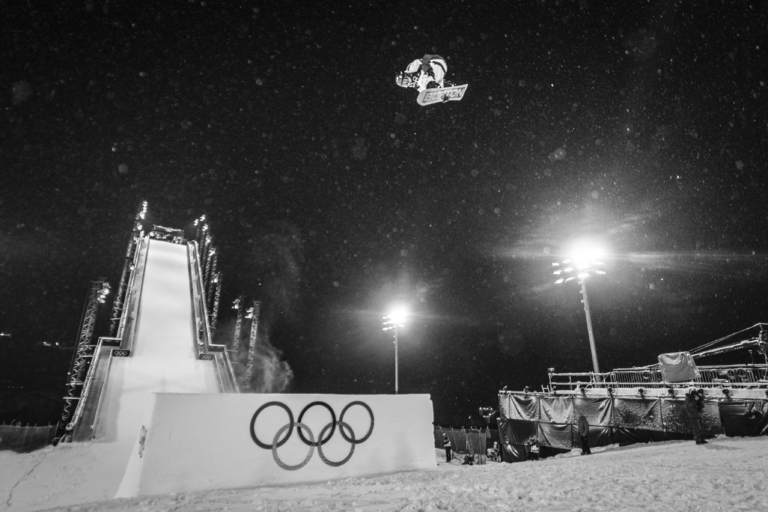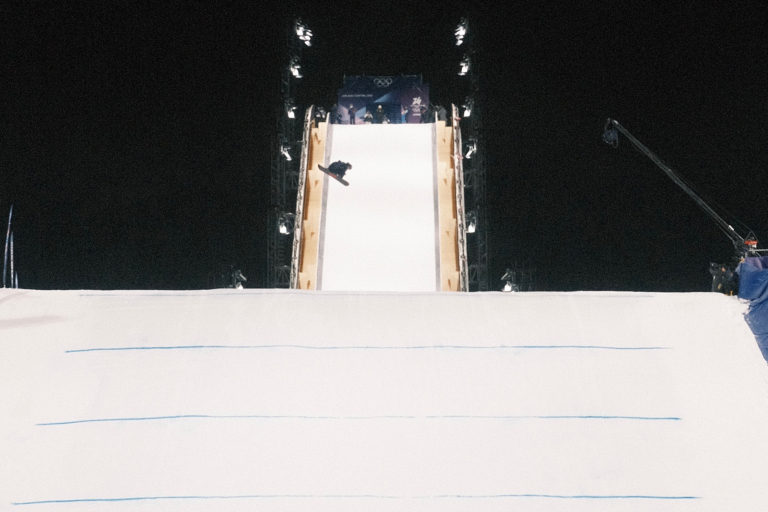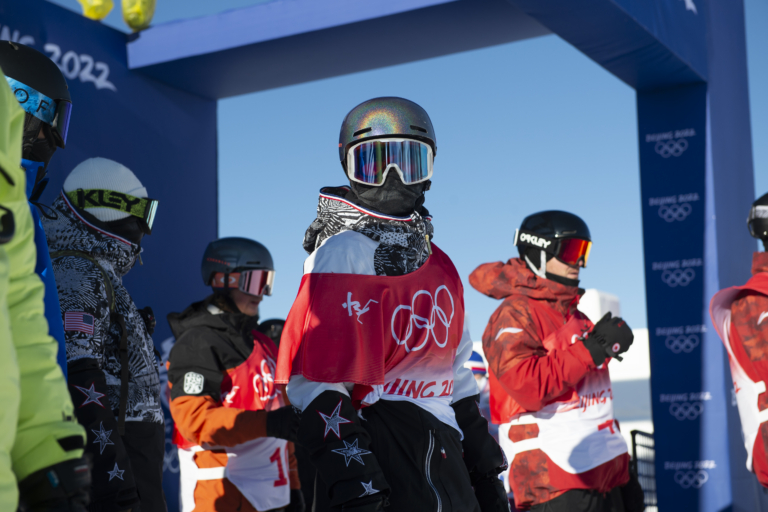words: Joe Kanzangu
“It’s nice to see some color up here,” a random, older white woman says, nudging me as I’m snowboarding with friends on one of our yearly fellas trips. That was in 2018. At the time, I didn’t know how to perceive that comment. As you can guess, I was the only Black person in her peripheral. That younger me was more fixated on what runs I was going to hit, if I had failed my midterms, and the fifteen Coors Banquets in my backpack. I did realize at the time, that in my two years of snowboarding and going on powder tours from Red River to Purgatory to Snowbasin, I usually was the only Black person I’d see. I was an “only.” If I didn’t bring another Black person, there was a very low possibility that I’d encounter someone that looked like me on the mountain. (Sorry to my friend Jared for that one year I dragged us to Utah to spend New Year’s Eve north of Salt Lake City and there was that old white dude who wouldn’t stop staring at us, as if WE were intruding in HIS SPACE.) There have been more times than I would like to recount when I’ve received backhanded commentary on my riding or been questioned for simply existing in the mountains in the first place. Where was the automatic belonging, safety, and ease that I so often saw depicted through my white friends?
Zoom forward to Monday, April 11, 2023. It’s the third commencement of Culture Shifters presented by Burton. In this world, nobody embodies Culture Shifters better than global icon and snowboarding legend, Selema Masekela. Selema, alongside the gravity-defying Zeb Powell, has cultivated, in his own words, “An opportunity for those that rarely get to see themselves in collected reflections.” Even on the airplane to Aspen, head nods are exchanged, the collective joy in anticipation is felt, and there is a flourishing of melanin in motion. When I meet Selema for the first time, we swiftly jump into talking about surf breaks in Africa.
Selema, welcoming everyone to Aspen, reveals that in Culture Shifters, Black and Brown folks can “bathe in an energy of making the mountains more colorful.” Where our existence can be seen and felt in plenitude, while simultaneously normalizing Blackness in its multifarious composition. As Ski Noir 5280 founder and director Quincy Shannon would note during our first post-ride fireside chats, “This experience allows us to take up space and say, ‘We dare you to try something.’”
On the shuttle from the airport to the Limelight Hotel, I nervously ask if anyone has been to Culture Shifters before. There are a few mixed responses, and then conversation naturally transitions to where everyone’s from. Before I know it, I’m sharing laughs, stories, and chicken meatballs at the White House Tavern with the founder and director of Brown Girl Outdoor World, Demiesha Dennis, and the globetrotting artist and musician Miranda Writes. Immediately we bond over our connection to the outdoors. Writes, a versatile Burton Ambassador, has a profound connection between snowboarding and music. Dennis speaks to us about her work in challenging the outdoor industry through being active in its inclusion initiatives. She stamps the fact that we’re not a trend that can be divested when it no longer benefits how you’re perceived. She also happens to be a badass fly angler.
The first day at Culture Shifters set the precedent for the energy to expect when a whole bunch of Black and Brown folks are brought together in a space: You find joy. Even through the uncomfortable hardships of learning and unfamiliarity, joy remains. And our joy looks loud in so many different ways. That first day I ran into Judith Kasiama, founder of Color the Trails. In the span of three minutes, we realize that our families are both from the Democratic Republic of Congo. We chop it up in Lingala, French, and English, and even do a whole skit of two Africans running into each other. Geographically, we’re worlds apart—she lives in Vancouver and I, in New York—yet our kinship overlaps in abundance. She’s the type to never shy away from engaging in spaces where anti-Blackness is practiced. Each night we had our fireside chats, Judith Kasiama and Demiesha Dennis exemplified what it looks like to speak on behalf of your communities. There was no space in appeasing whiteness, even with the influential few that were in the room with us. Kasiama, Dennis, and many other community leaders continued to fuel the fire of our conversations every single night.
The many nuances of Black expression were felt, but more importantly seen. “Meeting over 100 people who were all genuine, kind, and supportive was truly heartwarming and restored my faith in humanity,” brimmed Karlie Thornton, founder of froSkate. From being cajoled into riding my bike more by pro cyclist Justin Williams, to commiserating on the status of our favorite English Premiere League team with New York Jets tight end CJ Uzomah, to planning my next backcountry ski guide with Kam Weakley, I’ve never tapped into so many parts of myself all at once.
The four days in Aspen sprouted movements that point out the power and capability of the snowboard industry to lead in an authentic, active, and equitable manner. The conversations at Culture Shifters emphasized the need for youth programming to move beyond anecdotes and towards change that is felt on a substantial level. Organization leaders from SHRED Foundation, Stoked Mentoring, and Chill spoke on the difficulties of gathering resources. Their ecosystems are predicated on connecting everyone to the natural world around them; we should all be stakeholders in uplifting them. In order to succeed, these organizations are now moving in conjunction with one another, despite the competitive culture of the industry. “Our culture is about bringing all of us in so that we can all win,” says Kasiama. “As an industry, we have to decolonize how we see Brown and Black bodies. People, Black and Brown people, have so much potential to add to this industry. We have spending power. We won’t be cast aside. We’re more than your data charts indicates.”
During one of our fireside chats, Jacquelyn Quinene, chief financial officer and facilitator of fun of Edge Outdoors, talked about the cycle of teaching that’s happening at the organization. As a Black Woman-lead organization (founded by Annette Diggs), they focus on integrating BIPOC women into snowsports. The initiative goes from teaching Black, Indigenous, and women of color how to ride, to setting them up for professional success in the industry. A key theme of Culture Shifters was us aiming not only to shift the visuals, but also changing the infrastructure.
The fireside chats covered not only the needs of organizations, but also the actions already in place. As we actively color the slopes, we invest in collective power. There remains massive barriers to entry, including transportation, equipment, investment in diverse mentors, outdoor education, and access to funds. At Culture Shifters, we shared the progression of ideas that have been actualized which address some of these issues. Yet still, there is a need for more snowboarding hills in Black neighborhoods. More places where Black and Brown kids can get snowboard rentals and a lift ticket for fifteen dollars. In regards to inspiring the youth, we talked about what it looks like to enlist and empower parents. Where events such as Warm Up to Winter reframe the question of “Do you hate winter?” to “Do you hate being cold?” In doing so, even psychological barriers can be broken. We listened about the benefits of snowboarding in the neighborhoods. We’re establishing urban and green spaces in cities as parts of nature. Through this we can better understand how to engineer a more reflective community rooted in nature, the outdoors, and adventure.

“I think this is a jumping-off point for real coalition,” Selema denotes. Throughout the entirety of Culture Shifters, he and Zeb would go from table to table, making sure everyone was at ease, hearing people’s stories, and ensuring this really felt like a family reunion. On the last night, we celebrated with James Beard nominee, Chef Mawa McQueen’s Black-owned, cultural jewel of Aspen, Mawa’s Kitchen—the most vibrant global cuisine I’ve had in a minute.
That last night, cups were over-poured, tables were moved, stances solidified, memories welded, and bonds tied. In realtime, I got to actively witness the changing of a system. We engaged the operatic standards, and set and highlighted new modes of functioning—ones that address every part of the industry. There are so many ways for us all to get involved and support organizations, engine builders, and stars doing the grunt work.
“I never would have thought it was going to turn into a family reunion,” Omar Diaz, co-founder of Hoods to Woods, tells me on our last day. “There was so much love, that it felt like a family vacation. Seeing the appreciation everyone has for each other, and the brands pushing the envelope and helping us make this culture shift was a key takeaway for me.”
We all just want to see all types of people, from all different backgrounds on a board. Culture Shifters held a much-needed space for that.
Jake Burton Carpenter founded Burton Snowboards out of a Vermont barn in 1977. His resilient spirit, passion, and drive to place not only Burton as a leading brand today, but also snowboarding as a global, cultural phenomenon lives on. It lives on through all of us who decide to try something new. It thrives in those of us chasing after our passions and building community along the way. Those of us who decide to strike at the status quo and build better. Culture Shifters is his legacy, alive in us all, and that is the spirit of snowboarding. “We shared the spirit of snowboarding, while also getting real about the barriers to true diversity,” Donna Carpenter says at the end of the week.
The “only” multiplied and produced “The Onlyz.” We’re living proof that the outdoors is for everyone. We all belong. Afterwards, I run into Quincy Shannon at the airport. He organizes Slide Thru Saturdays. He reflects on the full circle experience that was Culture Shifters. “The joy that comes into my heart from this, is that there are real chances for us all to effect change.”
He adds, “We don’t need a martyr to establish change. We can all stay connected and pour into each other.”
At Culture Shifters, we leaned unto each other and stopped waiting for the industry. We paraded all through Aspen, and we’re not stopping until every room, every board, every slope, mountain, surf line up, skatepark, gear shop, and stoke film has some more melanin on it. We’ve got the riders, and as Zeb Powell perfectly put it, “WE GOT ASPEN LIT!” On all accounts.
Major flowers to all the companies willing to follow and invest in BIPOC leaders. Thank you Burton, Red Bull, Fat Tire, Aspen Snowmass, and Ikon for leading in action and turning into our accomplices in shifting the culture. So, when’s the next family reunion?

